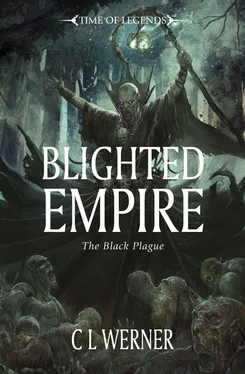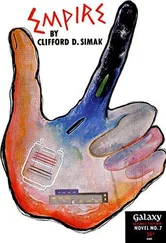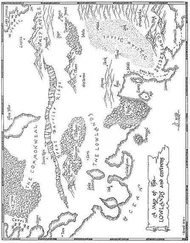C. Werner - Blighted Empire
Здесь есть возможность читать онлайн «C. Werner - Blighted Empire» весь текст электронной книги совершенно бесплатно (целиком полную версию без сокращений). В некоторых случаях можно слушать аудио, скачать через торрент в формате fb2 и присутствует краткое содержание. Год выпуска: 2013, ISBN: 2013, Издательство: Games Workshop, Жанр: Фэнтези, на английском языке. Описание произведения, (предисловие) а так же отзывы посетителей доступны на портале библиотеки ЛибКат.
- Название:Blighted Empire
- Автор:
- Издательство:Games Workshop
- Жанр:
- Год:2013
- ISBN:9781849703116
- Рейтинг книги:3 / 5. Голосов: 1
-
Избранное:Добавить в избранное
- Отзывы:
-
Ваша оценка:
- 60
- 1
- 2
- 3
- 4
- 5
Blighted Empire: краткое содержание, описание и аннотация
Предлагаем к чтению аннотацию, описание, краткое содержание или предисловие (зависит от того, что написал сам автор книги «Blighted Empire»). Если вы не нашли необходимую информацию о книге — напишите в комментариях, мы постараемся отыскать её.
Blighted Empire — читать онлайн бесплатно полную книгу (весь текст) целиком
Ниже представлен текст книги, разбитый по страницам. Система сохранения места последней прочитанной страницы, позволяет с удобством читать онлайн бесплатно книгу «Blighted Empire», без необходимости каждый раз заново искать на чём Вы остановились. Поставьте закладку, и сможете в любой момент перейти на страницу, на которой закончили чтение.
Интервал:
Закладка:
Fuerst glanced away, colour rising in his cheeks. ‘No, your ladyship, you pay me too much favour. The commander does nothing without reason. Even after you tried to… Even then he made no move to execute you, even petitioned the Emperor for clemency.’ Fuerst’s voice dropped to an embarrassed whisper. ‘With your father dead, you are now baroness. It is only through his connection to you that the commander may make any pretension of moving among the aristocracy. Without you, he is just a peasant.’
Erna leaned against the stone wall, her chains rattling against the floor. ‘He is a monster,’ she said, her voice hollow and bitter. ‘I thought I knew what he was when I agreed to kill him, but I didn’t. The barbarians who sacked Marienburg are more human than that beast!’ She held her hands across her face, shuddering as a new horror impressed itself on her mind. ‘Now this animal is going to be Protector of the Empire.’
Fuerst drew closer, excitement in his tone. ‘That is where you have a chance!’ he exclaimed. ‘Emperor Boris might trust the commander more than the nobles, but he doesn’t trust anyone fully. That is why he has decreed that you are to accompany him to Carroburg.’ Wearing a broad smile, Fuerst unfolded the clothes he carried across his arm, displaying for Erna one of her finest gowns. ‘The Emperor knows that it is through you that the commander is able to claim the status of a noble. He feels that by keeping you with him, it will give him a hold over the commander.’
Reaching forwards, Erna let her fingers slide down the soft smoothness of her gown. ‘So I trade one captor for another,’ she mused.
Fuerst shrugged and pointed at the dank walls of the cramped cell, at the straw pallet and sackcloth shift. ‘It can’t be worse than this,’ he said.
Erna took the gown from Fuerst, hugging it to her breast. ‘No, it can’t,’ she answered before her voice collapsed into an inarticulate sob. Years of torture and isolation — could they finally be at an end? Even as Fuerst unlocked the shackle from her wrist, Erna expected her husband and a gang of Kaiserjaeger to come bursting through the door. It was just the sort of cruelty that would appeal to Kreyssig’s humour, to build up hope and then smash it in the most brutal manner possible.
Only when she was dressed and unchained, being led by Fuerst out into the corridor beyond her cell, did Erna accept that her release was real. She had been traded, given into the keeping of Emperor Boris as hostage for her husband’s loyalty. Her life against that of every man, woman and child in the Empire.
Ulric have mercy, but to escape the clutches of Kreyssig, Erna was willing to make such a monstrous bargain.
Mordheim
Ulriczeit, 1112
Across the curtain of night, the ponderous notes of temple bells reminded the denizens of the city that even in the darkest hour, when the powers of Old Night waxed strong, the gods were still watching. It was a sound that had once brought comfort and solace to the simple, superstitious folk. The thought that the gods remained vigilant when the creatures of darkness were abroad, when ghouls stalked graveyards, when witches flew through the blackened sky and skin-wolves prowled under shadowed trees.
Of late, however, the voice of the temple bells had taken on a bitter, mocking quality. The Black Plague was abroad, slaughtering old and young, pious and impious, peasant and noble with equal rapacity. If the gods were still watching over mankind, not the wisest of priests could explain their indifference to its suffering.
Ensconced within the cold stone-walled fastness of his chambers, one of those suffering masses looked up from the documents spread across the table before him. He closed his eyes and listened to the bells tolling away the hour. There was another sound, softer yet nearer, a low wailing that filtered through the ancient halls. It was a haunting, melancholy sound, the animate voice of anguish and loss and regret.
Regret? That word brought a cynical curl to the man’s pale, pinched face. He swept a jewelled hand through a mane of luxuriant black hair and leaned back in his gilded chair. There was a suggestion of sardonic amusement in his eyes as he stared down at the scrolls and parchment sheaves piled before him. Like a dragon perched atop its hoard, he hovered above the heap. It would take the treasure of a dragon to rival the wealth laid out on the table, for it was a tangible representation of the lands and holdings that went with the title Baron von Diehl.
A title that had finally passed from Hjalmar von Diehl to his son Lothar.
That transition of wealth and authority had been a long time taking shape. The old baron had been a long time about dying. Towards the last, it had become something of a race to see whether the father would exhaust the legacy of the von Diehls on alchemists and physicians and generous tithes to the temples in a desperate bid to bribe the gods to intercede.
Many times, Lothar had despaired, wondered if he shouldn’t employ cudgel or dagger to effect his father’s speedy demise. Such impatient temptations were fought back only by the fiercest exertion of will. The spells were doing their work. Slowly but surely his father’s vitality had been ebbing, leeched away by phantom parasites neither priest nor physician could discover. When the old baron died, there were none who thought of murder. To even the most suspicious, there was never a notion that the baron was anything but another victim of the Black Plague.
Lothar set a covetous hand against the stack of deeds that represented ownership of three-quarters of Mordheim’s riverfront. He smiled as he saw a promissory note from Count Steinhardt himself peeking out from beneath the pile. Great and small, many were those who must credit the Baron von Diehl for their prosperity.
Rising from behind the table, Lothar paced across the cheerless confines of his study. Prosperity had become a bitter word to the people of Mordheim, a mocking echo of better times. With over half the city carried off by the plague, the fields beyond the walls invaded by starving refugees, the violence in Talabecland choking off what river trade still flowed into Ostermark, Mordheim was in the throes of her own slow death.
It was the natural order of things, Lothar mused. People and places were fated to grow, thrive and prosper for a season, but then must come that time when they would wither, decay and die. Not the gods themselves could defy the laws of fate.
A cold smile formed across Lothar’s face. The only way a man could ensure his accomplishments was to set himself outside the tyrannical dictates of fate. His grandfather had awakened to that revelation, but had lacked the fortitude to pursue his studies fully. His father, with pious horror, had rejected the researches of the elder von Diehl, burning his books and papers when the barony came into his possession. Hjalmar had been thorough in his fiery purge, but not perfect. A few tomes slipped his notice, and eventually those volumes of forbidden lore had found their way into Lothar’s hands. The seeds of the grandfather’s work found fertile soil in the grandson’s mind.
Staring up at a portrait of his father, Lothar sighed as he recalled all the years he had been compelled to secrecy, labouring away in the disused cellars and crypts beneath the castle, embezzling money from the von Diehl estates to fund his experiments, to procure the obscure books necessary to his research. With the support and understanding of his father, Lothar should have progressed in his studies with cosmic momentum. Lacking such assistance, he’d been forced to trudge away, content himself with the most restrained and insignificant advances. In those long hours, shivering in the clammy gloom of the castle vaults, he realised that if he were to succeed, he must become baron. When rumours drifted into Mordheim of a mighty sorcerer who had arisen in Sylvania and brought the von Draks to heel, a terrible envy took hold of Lothar’s heart. No longer would he wait for the power that must one day belong to him!
Читать дальшеИнтервал:
Закладка:
Похожие книги на «Blighted Empire»
Представляем Вашему вниманию похожие книги на «Blighted Empire» списком для выбора. Мы отобрали схожую по названию и смыслу литературу в надежде предоставить читателям больше вариантов отыскать новые, интересные, ещё непрочитанные произведения.
Обсуждение, отзывы о книге «Blighted Empire» и просто собственные мнения читателей. Оставьте ваши комментарии, напишите, что Вы думаете о произведении, его смысле или главных героях. Укажите что конкретно понравилось, а что нет, и почему Вы так считаете.












